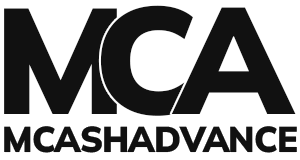Merchant Cash Advances (MCA’s)
Merchant cash advances (MCA’s) are best for businesses that need fast access to capital to help cover short-term expenses or seasonal dips in revenue.
Applying is free and won’t affect your personal credit score.

Apply online today
Complete our online application in less than 5 minutes and enjoy fast processing, no paperwork, and quick approval of your MCA.
Same day funding
Get funded the same day you apply for your MCA. Receive your cash in as little as 24 hours. Our average funding time is 1-3 days.
Bad credit accepted
Bad credit does not prevent you from getting an MCA because the approval process focuses on the strength of your credit card sales.
No credit check
No credit check is conducted when you apply for an MCA. Only a soft credit pull is carried instead of a hard one to ensure your credit won’t be affected.
What is a merchant cash advance?
When you get a merchant cash advance from MCashAdvance, we provide you with an upfront lump sum of working capital and in exchange, you repay the lump sum, plus a fee from a portion of your business’s future credit card sales.
Approval is based on the strength of your business’s credit card sales not your credit score or how much collateral you can provide.
There are no interest rate payments. Instead, you pay a flat fee called a factor rate, which ranges from 1.1 to 1.5. You repay the advance amount, plus the flat fee, from a percentage of your credit card receipts. This fixed percentage, known as the holdback percentage, ranges from 10% to 25%.
| MCA Feature | MCA Details |
|---|---|
| MCA Amounts: | $5,000 – $900,000 |
| Factor Rate: | 1.1 – 1.5 |
| Holdback Rate | 10 – 25% |
| Repay In: | 3 – 18 months |
| Funding Time: | 1 – 3 days |

Who should apply?
Small business owners who need short-term financing and have consistent credit card sales should apply for a merchant cash advance. This alternative type of business financing is ideal for businesses that may not qualify for a short-term loan or a traditional bank loan but have steady revenue through credit card payments. Approval is based on the strength of your business’s credit card sales. So even if your business has no business credit history, no physical collateral, or less-than-perfect credit, you still have a very high chance of getting approved.
How to get a merchant cash advance
Apply entirely online to get a merchant cash advance from MCashAdvance by following these simple steps:
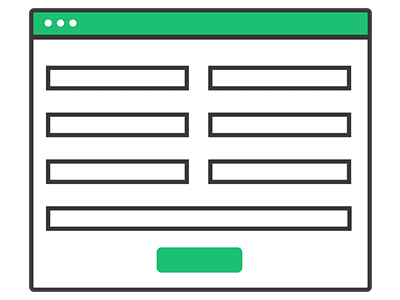
Step 1. Apply
Online
Fill out our online application form. You only need to provide basic information about your business and its finances.
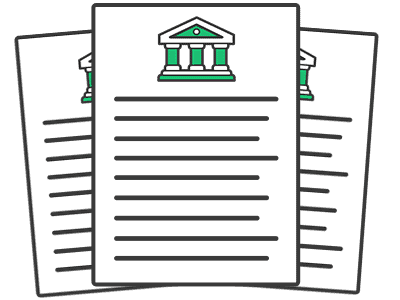
Step 2. Submit Documentation
Submit the last 3 months of your business bank statements. Or, your credit card processing statements.
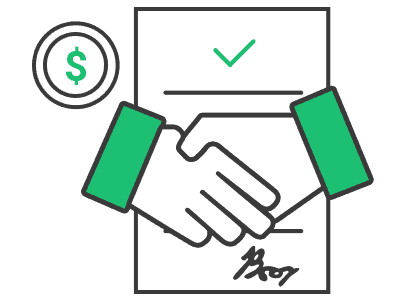
Step 3. Let Us Review
Our underwriters will review your MCA application. If everything checks out, they’ll send you an offer.
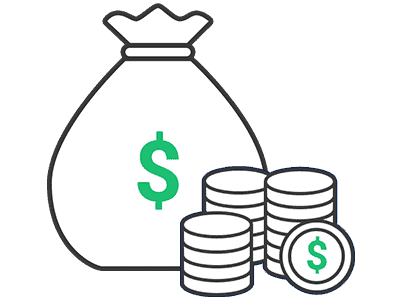
Step 4. Receive Your MCA
Accept the offer, sign the contract and the up-front lump sum payment will be deposited into your bank account.
To learn about the application process with different merchant cash advance providers, read our “how to apply for an MCA” guide.
Merchant Cash Advance Requirements
Merchant cash advances have far fewer requirements than traditional bank loans and are much easier to qualify for.
Your business only needs to meet the 6 requirements below to be eligible for MCA funding from MCashAdvance:
- Monthly credit card sales of atleast $7500
- Three months of bank statements
- Three months of merchant processor statements
- FICO credit score of 550 or above 6 months in business
- Must be atleast 18 years old
- Must be a US citizen or resident
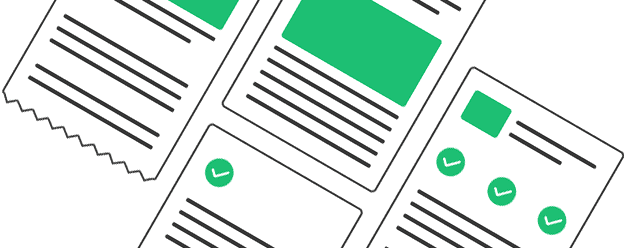
To find out what other MCA companies may ask for, read qualification requirements for an MCA.
Recent businesses that received merchant cash advances

What are MCA loans?
MCA loans describe merchant cash advances, which provide businesses with upfront cash in exchange for a portion of future credit card sales.
An MCA should not be considered a traditional business loan. The merchant cash advance company is not loaning you money. They don’t charge interest or ask for collateral like a business loan. You won’t pay back a fixed amount plus interest over time like a traditional loan.
Instead, you are being offered an upfront payment and are selling a portion of your future credit and debit sales to pay back the advanced amount.
Repayments fluctuate based on your daily credit card sales. When credit and debit card sales are high, you pay back more of the advance on that day. If sales are on the lower side, you repay less of the advance on that day.
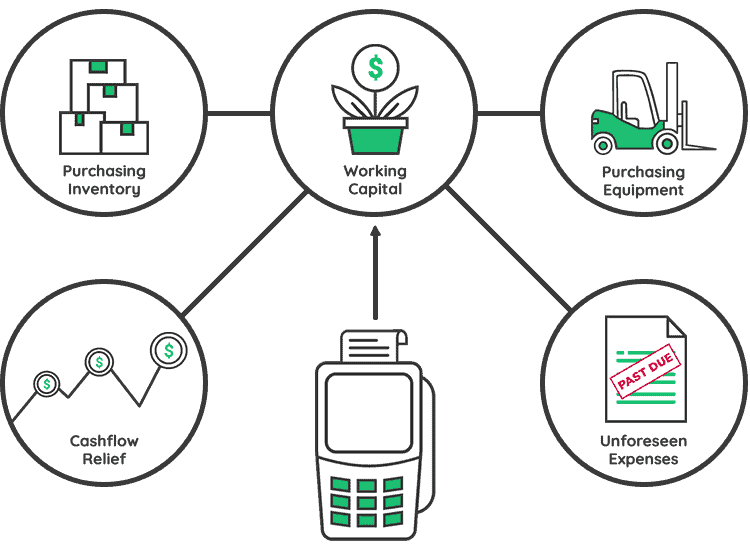
What can a merchant cash advance be used for?
There are no restrictions on what you can use an MCA for in your business. Most business owners use the MCA they receive to help with short-term expenses and purchases.
The 5 most common uses are:
- Supporting cash flow
- Working capital
- Cover unforeseen expenses
- Purchase Inventory
- Equipment Purchases
For a more detailed list of what you can use MCAs for in business, read uses of MCAs
Merchant cash advance pros and cons
Before you consider any alternative financing, like a merchant cash advance, you must weigh its pros and cons:
Pros
- Simple online application process
- Bad credit accepted
- No credit checks
- Lower eligibility requirements
- No psychical collateral required
- Same day funding available
- No restrictions on funds usage
For more Pros, read 20 benefits of an MCA.
Cons
- More expensive than loans
- Very high APR rates
- Daily repayments may hurt future cash flow
- Shorter repayment periods
- Won’t improve credit score
- Cash-only businesses are not eligible
- No early repayment benefit
For more Cons, read 10 drawbacks of an MCA.
How much will a merchant cash advance cost?
The total borrowing cost of your merchant cash advance will be the advance amount given, plus the factor rate fee the MCA provider charges you.
To calculate the true cost of a merchant cash advance, multiply the advance amount by the factor rate. For example, if you receive a $20,000 MCA with a factor rate of 1.2, you will owe $24,000 ($20,000 x 1.2).
Most MCA providers and lenders charge a flat factor rate fee. But, some brokers and lenders may add extra fees, like origination, processing, and early repayment fees. So, it’s important to confirm with your provider that there are no hidden charges before finalizing any agreement. At MCashAdvance, we do not charge any hidden fees.
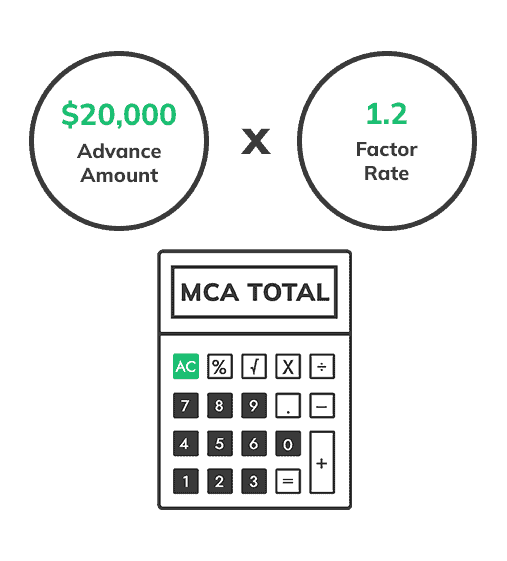
Merchant cash advance example
Imagine your business makes $25,000 each month from credit and debit card sales. You need quick cash for some expenses, so you apply for a $20,000 merchant cash advance.
The MCA provider evaluates your credit card sales and business’s credit risk. They offer the $20,000 at a 1.2 factor rate with a 15% holdback each day.
This means the $20,000 MCA will cost you ($20,000 x 1.2) = $24,000 in total. From your average monthly credit card sales of $25,000, the provider will hold back 15% each day ($25,000 x 0.15 / 30) = $125 per day.
At an average of $125 a day, it’ll take around 192 days, or 6.4 months, to repay the $24,000.
Repayment time varies with your daily sales. More sales mean quicker repayment: fewer sales mean slower. The 15% deduction remains constant.
Use this MCA calculator to get an idea of what an MCA might cost you, based on what you’re looking for.
| Details | MCA Example |
|---|---|
| Advance Amount | $20,000 |
| Factor Rate | 1.2 |
| Holdback | $125 per day (15% of daily credit card sales) |
| Estimated Repayment Period | 6.4 months |
| Total Pay Back | $24,000 |
| Estimated APR | 71.17% |
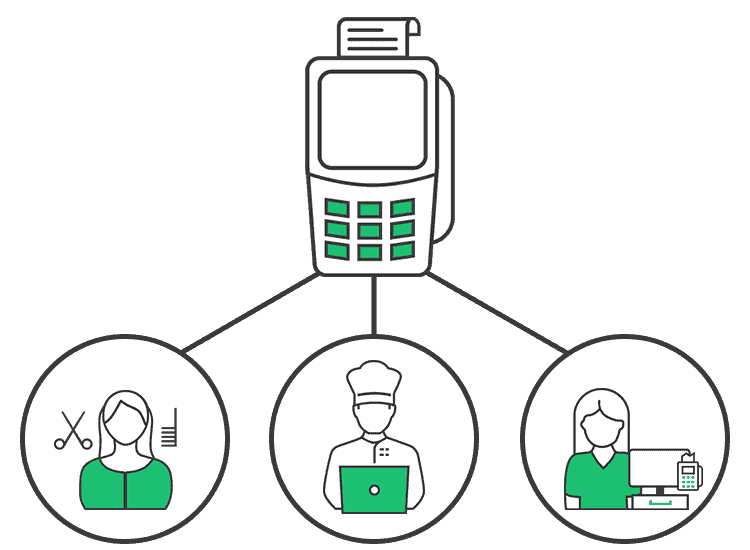
Why are funding offers sometimes lower than the amount requested?
The amount of cash the MCA provider offers you may be lower then the amount you request. This is because the MCA provider may feel giving you the full amount is too risky. They decide how much to offer based on the strength of your credit card sales, your credit history and business history. Providers usually offer 50% to 250% of your credit sales.
How are merchant cash advances evaluated?
First, our fintech software checks if you pre-qualify for a merchant cash advance. Then, one of the underwriters at MCashAdvance reviews your application and supporting documents. The underwriter starts by checking the strength of your monthly credit card sales.
Next, they review your bank statements to check your business’s cash flow. They look for red flags like too many NSFs, negative overdrafts, or other debts. After that, they do a soft inquiry to view your personal and business credit scores. This won’t affect your credit.
They will use this information to decide to offer you funding. They will also use it to determine how much they will charge (factor rate fee) to provide you with the advance.
For a more detailed breakdown of the evaluation process read MCA underwriting
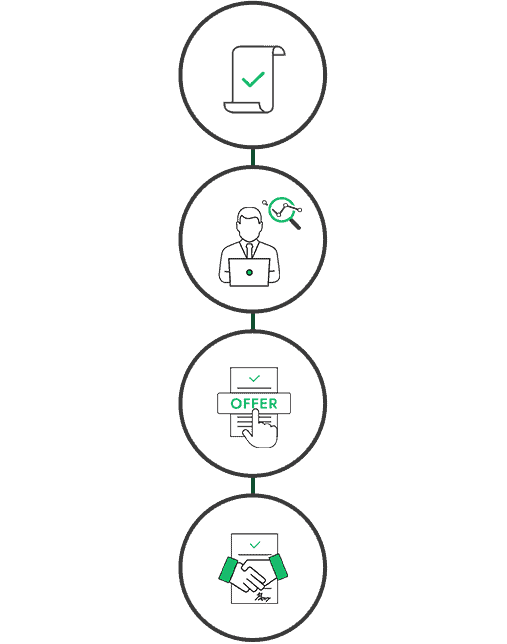
How to repay a merchant cash advance?
There are two main ways to repay an MCA: either the MCA company deducts a percentage of your credit card sales directly from your card processing merchant account, or they withdraw fixed payments from your business bank account.
Percentage of credit card sales deductions: The MCA company works with your credit card processor to deduct a fixed percentage of your daily credit card transactions. This method is called split withholding. The amount you repay varies based your daily card sales volume — more card sales mean faster repayment, while lower card sales mean you pay back less.
Fixed payment bank withdrawals: The MCA company withdraws fixed payment amounts from your business bank account. This amount, typically debited weekly, is based on an average of your monthly credit card receipts. This method is known as ACH withholding. It offers a predictable repayment schedule, which helps in managing cash flow more effectively.
Key things to consider: The repayment continues until you have repaid the advance amount, plus the factor rate fee and any other fees you agreed to. MCA companies try to keep repayment periods between 3 and 18 months.
For a more in-depth breakdown of the repayment process, read our “how to repay an MCA” guide.
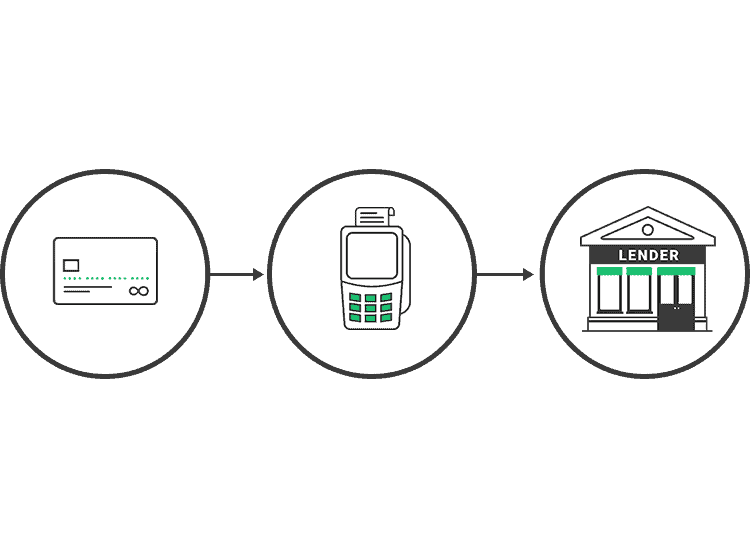
The differences between merchant cash advances and business loans
| Loan Features Comparison | Merchant Cash Advances | Bank Loans | SBA Loans |
|---|---|---|---|
| Funding Amounts | $5,000-$900,000 | $100,000 | Credit dependent. |
| Application Process | Short online application process with same day approval and no paperwork. | Long application process with lots of paperwork. | Long application process with lots of paperwork like business plans. |
| Bad Credit Accepted | Yes | No | No |
| Hard Credit Check | No | Yes | Yes |
| Approval Time | In as little as 24 hours. | Takes weeks. | Takes weeks. |
| Time to Funding | Same day funding. | 1-3 Months. | 1-3 Months. |
| Approval Criteria | Credit Card Sales. | Credit score and collateral. | Credit score and collateral. |
| Borrowing Costs | High (15% to 50%) | Low (6% to 12% ) | Low (11% to 15%) |
The table shows the differences between merchant cash advances and traditional business loans. To learn the key differences between MCAS and other business financing options, like business lines of credit, invoice financing, equipment financing read the top 10 alternatives to merchant cash advances.
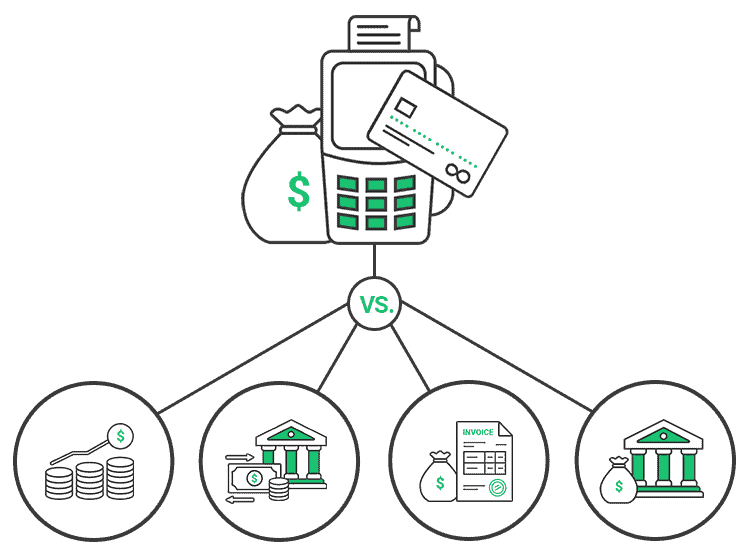
Is MCA funding right for your business?
MCA funding is a good funding option for businesses with strong credit card sales that may not meet the strict loan criteria to qualify for a loan. But its high rates and fees make it a very expensive alternative type of business funding.
Before you commit to MCA funding or any alternative financing that offers bad credit business loans, make sure it’s a financially sound choice for your business so you don’t end up falling into a cycle of debt.
Frequently asked questions
Get funded the same day you apply for your MCA. Receive your cash in as little as 24 hours. Our average funding time is 1-3 days. To speed up the approval process and funding time, have your last 3 months’ business bank statements ready after applying. Also, ensure you’re available for a call at the provided number if needed.
Bad credit does not prevent you from getting an MCA because the approval process focuses on the strength of your credit card sales. But because you have bad credit, you can expect to pay much higher rates. As long as you have strong credit card sales and your bad credit is FICO 550 or above you get an MCA from MCashAdvance.
A merchant cash advance is not considered to be a loan, so it is not reported to the credit bureaus, so your credit won’t get hurt. But, if you can’t pay it back, the MCA provider might involve a collections agency or sue for the amount owed. If a court or collections judgment goes against you, this gets recorded on your credit report and will hurt your credit. Read MCA credit reporting to learn more.
No credit check is conducted when you apply for an MCA. Only a soft credit pull is carried out to ensure your credit won’t be affected.
If you default on the MCA, the funder can send the debt to a collections agency or file a lawsuit to seize your business assets to recoup their losses. Even if you miss one payment, that is usually considered a breach of contract and you are considered to be in default of your MCA agreement. Read more about the consequences of defaulting on an MCA and how to avoid them.
Yes, an MCA is a type of unsecured financing, so you don’t need to offer assets or collateral to secure the funding. However, some MCA providers may request a personal guarantee. This means if your business fails to repay the advance, you would be personally responsible for the debt.
Is an MCA tax-deductible?
Funds from an MCA are not taxed when received. However, you will need to pay taxes on the revenue you generate that is used to repay the MCA. This is because the MCA is an advance on your future revenue. The rates and fees may also have different tax implications. For a detailed breakdown, read MCA taxation guidelines.
Yes, it is possible to refinance an MCA. You can either approach your current MCA provider for refinancing options or consult a different lender and secure financial instruments, like a term loan, to settle the MCA balance. Read refinancing an MCA to know your options and the key steps to take.
Can startups get an MCA? Yes. Startups can qualify for MCAs provided they meet the minimum qualification. Read MCAs for startups to confirm if your startup qualifies.
Can Multiple MCAs be Consolidated? Yes. Your MCA provider may be willing to roll multiple MCAs into a single new cash advance. You also have to option to approach a lender that offers consolidation loans to pay off your existing MCA debts.
While MCAs become popular during the 2008-09 financial crisis when it was difficult to secure credit from traditional lenders, the origin of MCAs date back to the 1990s. Read the history of the MCA industry to learn more.
It depends. Some MCA providers incorporate clauses in their agreements requiring you to provide a personal guarantee, making you directly responsible should the business fail to repay. It’s essential to review your agreement carefully before committing. Read more about MCA personal guarantees to understand what they are and how they work in more detail.
If your business cannot qualify for a traditional business loan, MCA Financing might be a good alternative during a cash flow crisis. But you should use all types of high-interest-rate financing, including MCAs, as a last resort.
Ready to apply?
No hidden costs or fees
No paperwork
5 minute application
Bad credit accepted
No obligation to accept
High approval rates
